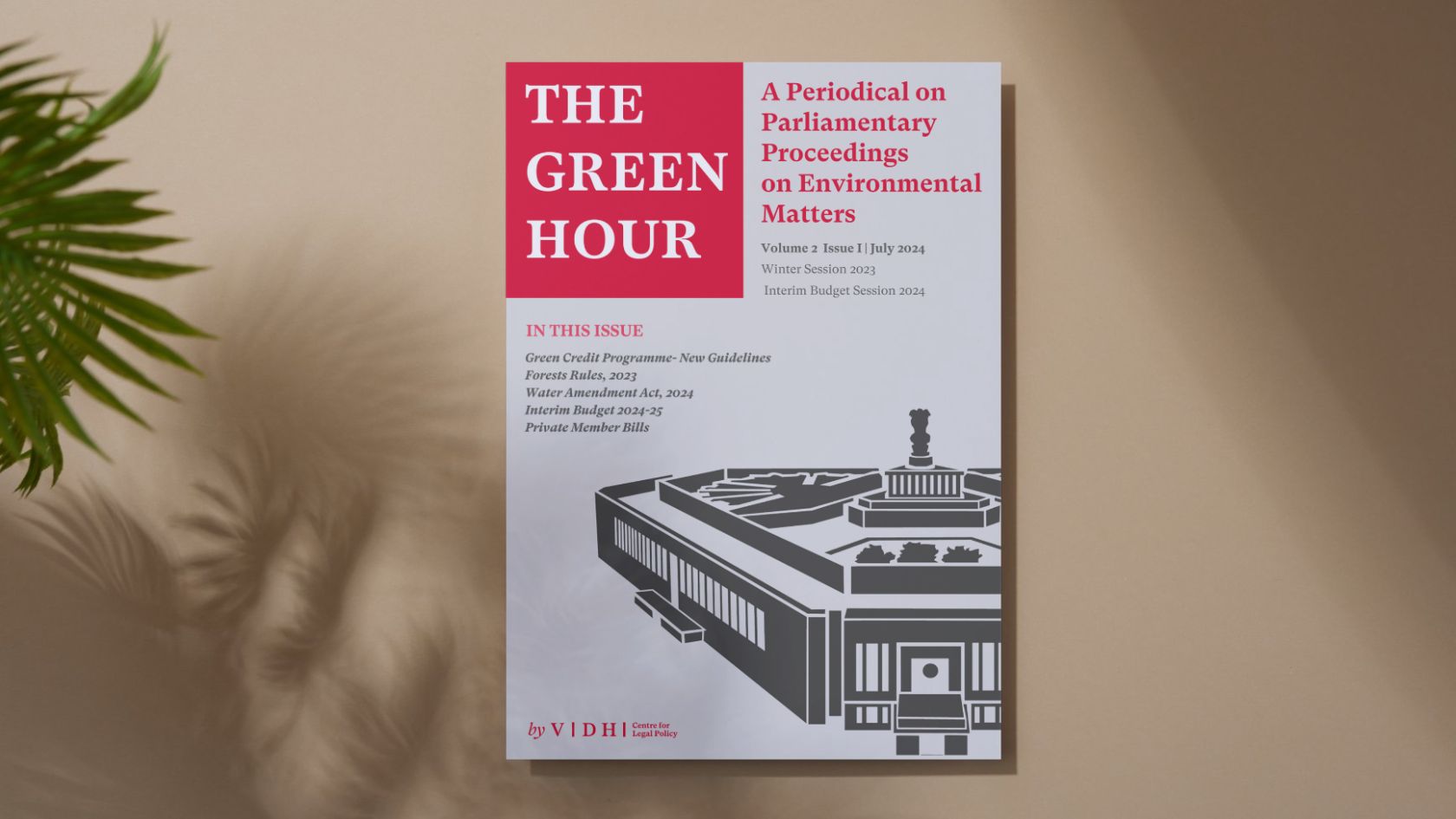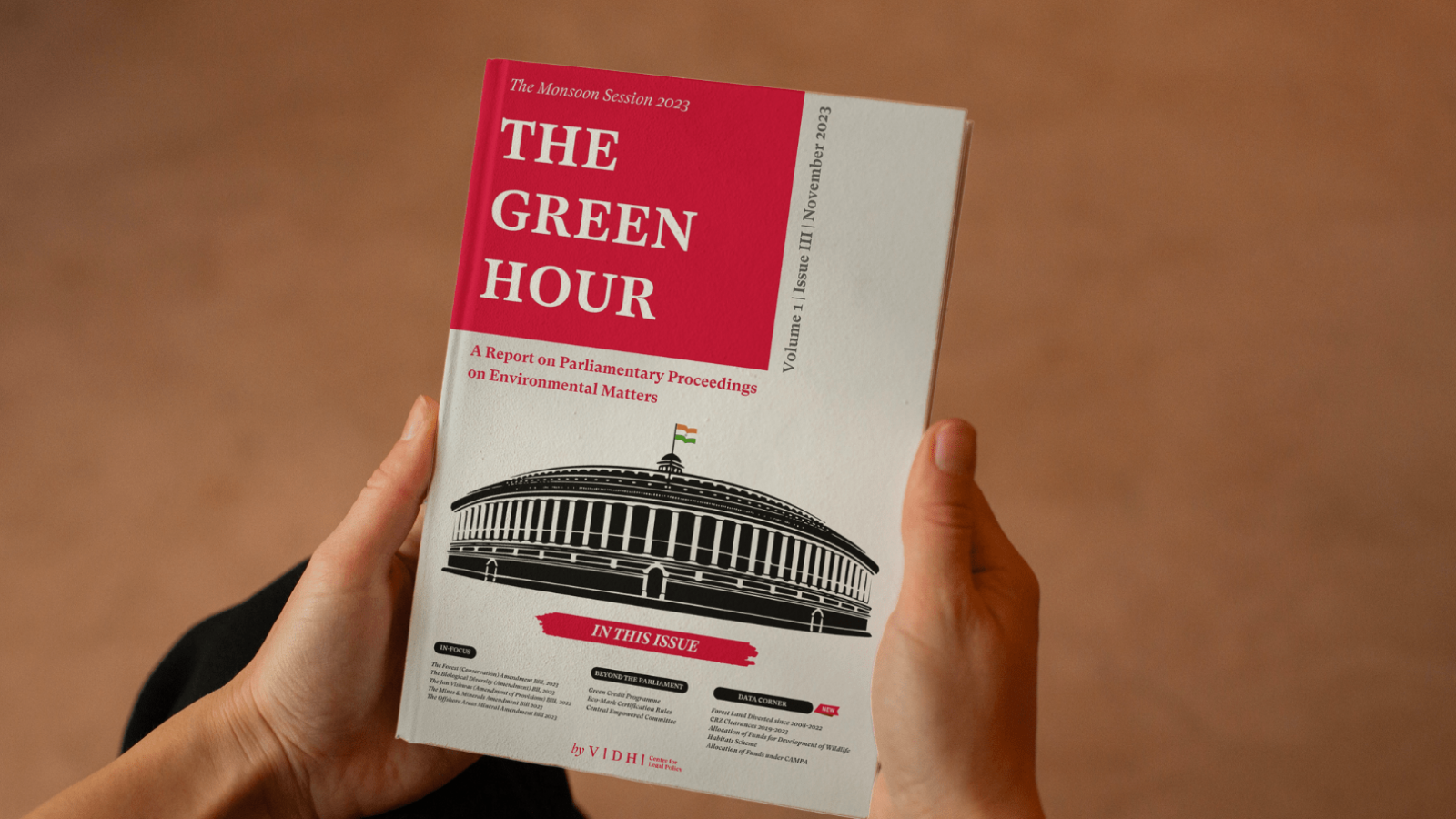On the basis of IIT Kanpur’s Comprehensive Study on Air Pollution and Green House Gases, Vidhi identified responsible authorities, timelines and implementation routes to tackle air pollution from five key sources—coal-fired power plants, vehicles, burning crop residue, ready-mix concrete batching plants and construction dust.
This Implementation Action Plan is intended to go beyond the Graded Action Plan drawn up by the Central Pollution Control Board, the main thrust of which still remains the stringent enforcement of existing rules and the imposition of bans. This route has shown limited success in combating Delhi’s air pollution problem.
Vidhi’s action plan goes beyond the routine recommendation to strengthen monitoring and enforce compliance. Instead, it identifies a range of actions—legislative, executive, policy and financial—to give effect to the different solutions that have been proposed to combat the crisis.
Vidhi followed this up with a project that aimed to build a regulatory performance index, which would allow citizens, advocacy groups and other researchers to evaluate the action taken by public authorities to tackle air pollution. Using construction activities in the Delhi NCR as a case study, it has created a portal, ‘Biting the Dust‘ to provide in-depth tracking of the enforcement of laws against construction activities. It provides information on show-cause notices issued for construction-related violations, directions issued to halt construction, inspections conducted, and penalties imposed.
About the Authors

Arghya Sengupta
Arghya is the Founder and Research Director at Vidhi. His areas of specialisation are constitutional law and regulation of the digital economy. He has served on a number of government committees including the B.N. Srikrishna-led committee of experts on a data protection framework for India.
Arghya has a number of academic publications on the Supreme Court and the Constitution in leading law journals such as Law Quarterly Review and Public Law. He is also a columnist at The Telegraph and The Times of India. He has most recently authored a book “Independence and Accountability of the Indian Higher Judiciary” (Cambridge, 2019) which builds on his doctoral work at Oxford University. Prior to founding Vidhi, he was at Oxford as a Lecturer in Administrative Law at Pembroke College.

Debadityo Sinha
Debadityo is a Senior Resident Fellow and Lead, the Climate & Ecosystems team at Vidhi. His research interest lies in the intersection of ecology, law, and policy. He graduated with B.Sc. (Hons) in Zoology from the University of Delhi in 2009 and completed M.Sc. (Tech.) Environmental Science & Technology from Banaras Hindu University in 2012. He has also undertaken training on Tropical Forest Restoration from Yale School of Forestry and Environmental Studies in 2016. He has over 12 years of professional experience in issues related to the environment and wildlife protection. In the past, he has worked with organizations like Vikram A. Sarabhai Community Science Centre, Legal Initiative for Forest & Environment, WWF-India, Wildlife Trust of India and several grassroots organizations. He is founder and trustee of Vindhyan Ecology and Natural History Foundation (since 2012). He is a recipient of the Sanctuary Wildlife Service Award' (2019) and is member of IUCN-Species Survival Commission’s Bear Specialist Group and EKOenergy network, Helsinki. Debadityo has also initiated litigations in the National Green Tribunal on issues related to environmental clearance, declaration of eco-sensitive zones and compensation for environmental damage.

Dhvani Mehta
Dr. Dhvani Mehta {B.L.S. LL.B. (University of Mumbai); BCL, D.Phil (Oxon)} is a Co-Founder at Vidhi and Lead, Health. She has worked specifically on research projects on environmental clearances, the National Green Tribunal, organ transplant laws, end of life care, and pharmaceutical and medical device regulation. She has appeared in the Supreme Court of India in petitions filed by Vidhi on advance medical directives and discrimination against persons affected by leprosy. She has authored chapters on the implementation of environmental judgments and healthcare corruption in India.
Dhvani read for a doctoral degree at the University of Oxford on a Rhodes Scholarship, where she was Chairperson of Oxford Pro Bono Publico and an editor of the Oxford Human Rights Hub blog. Her doctoral thesis explores the idea of an environmental rule of law in India and was cited by the Supreme Court of India.

Yashaswini Mittal
Yashaswini Mittal was a Research Fellow at Vidhi.







